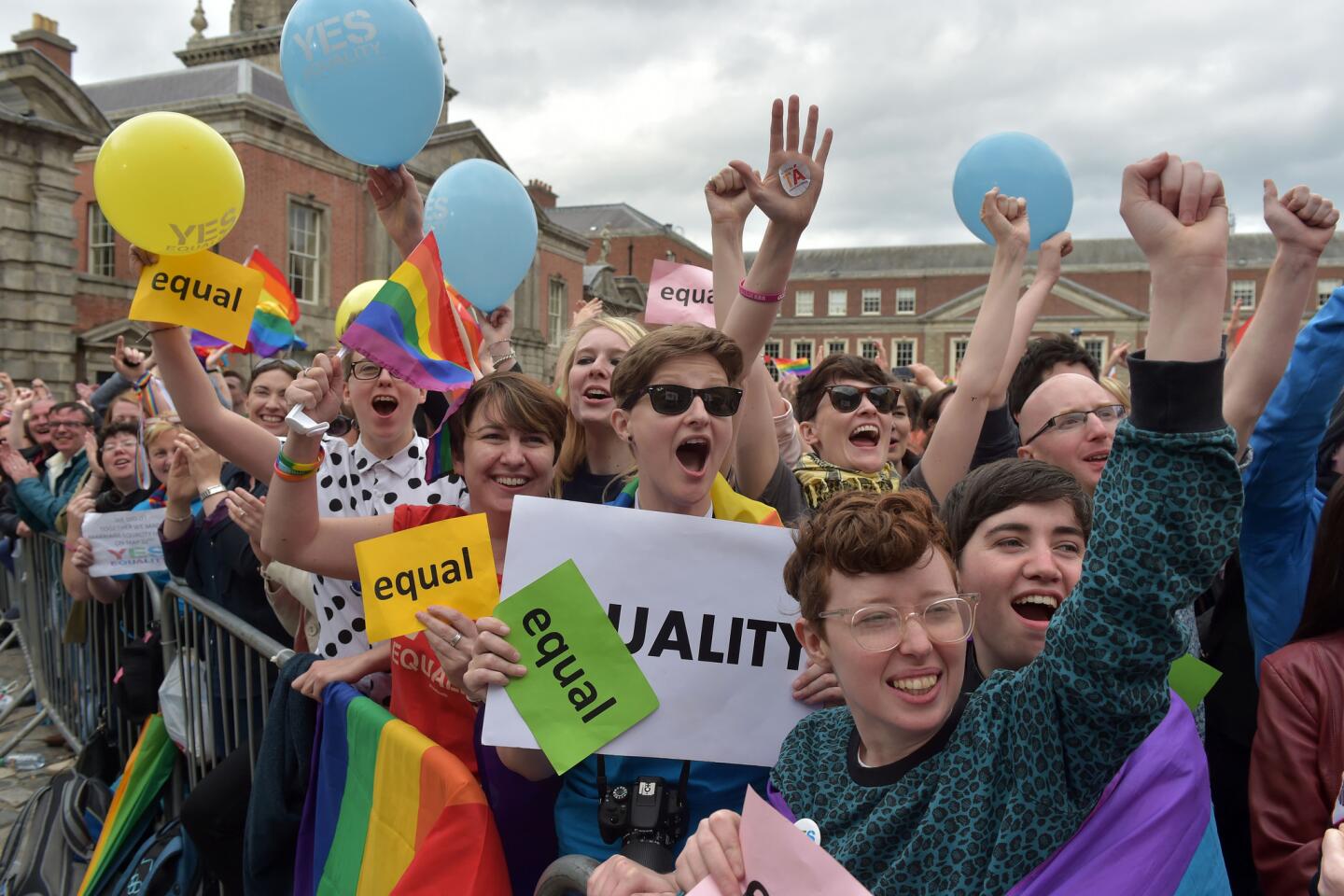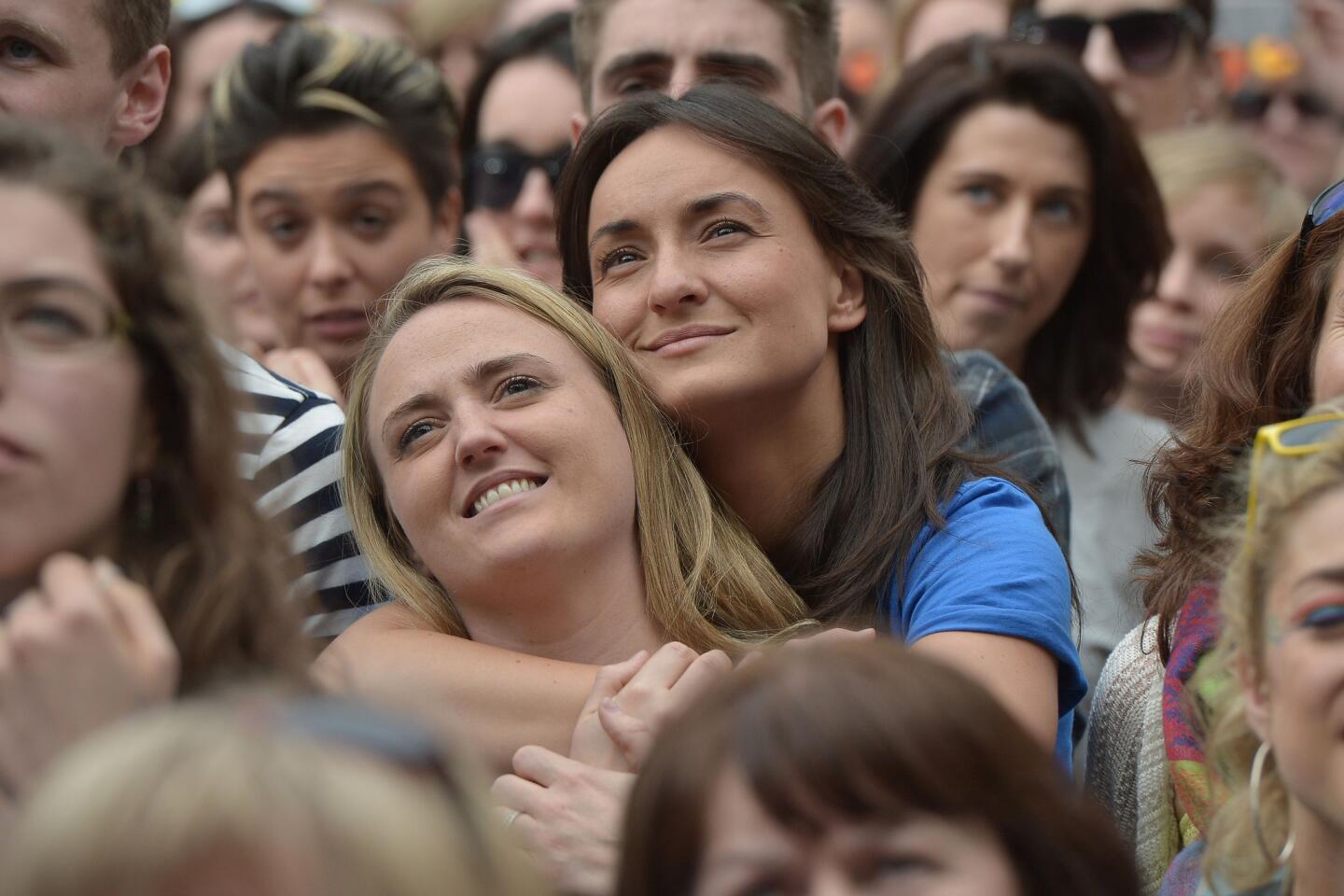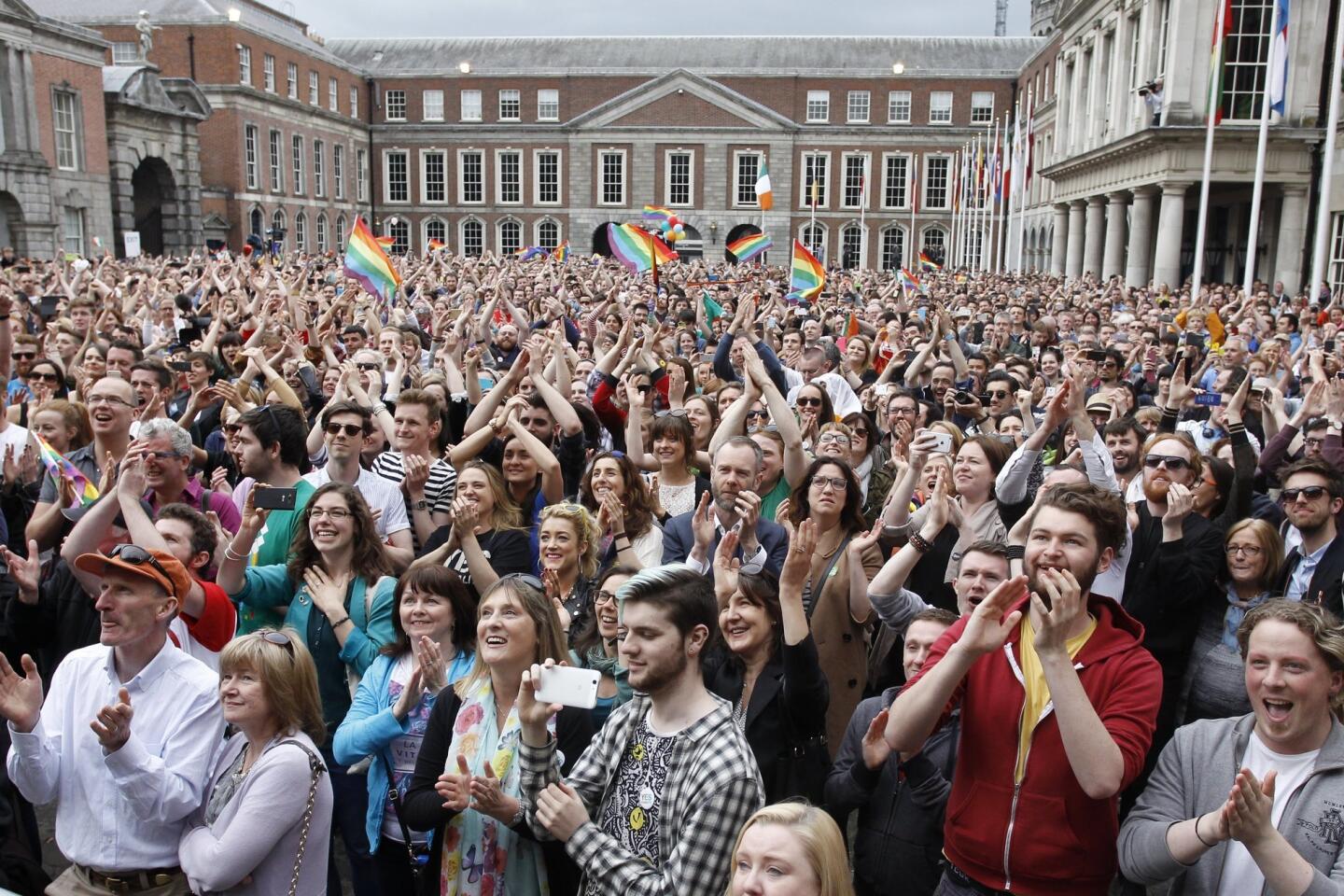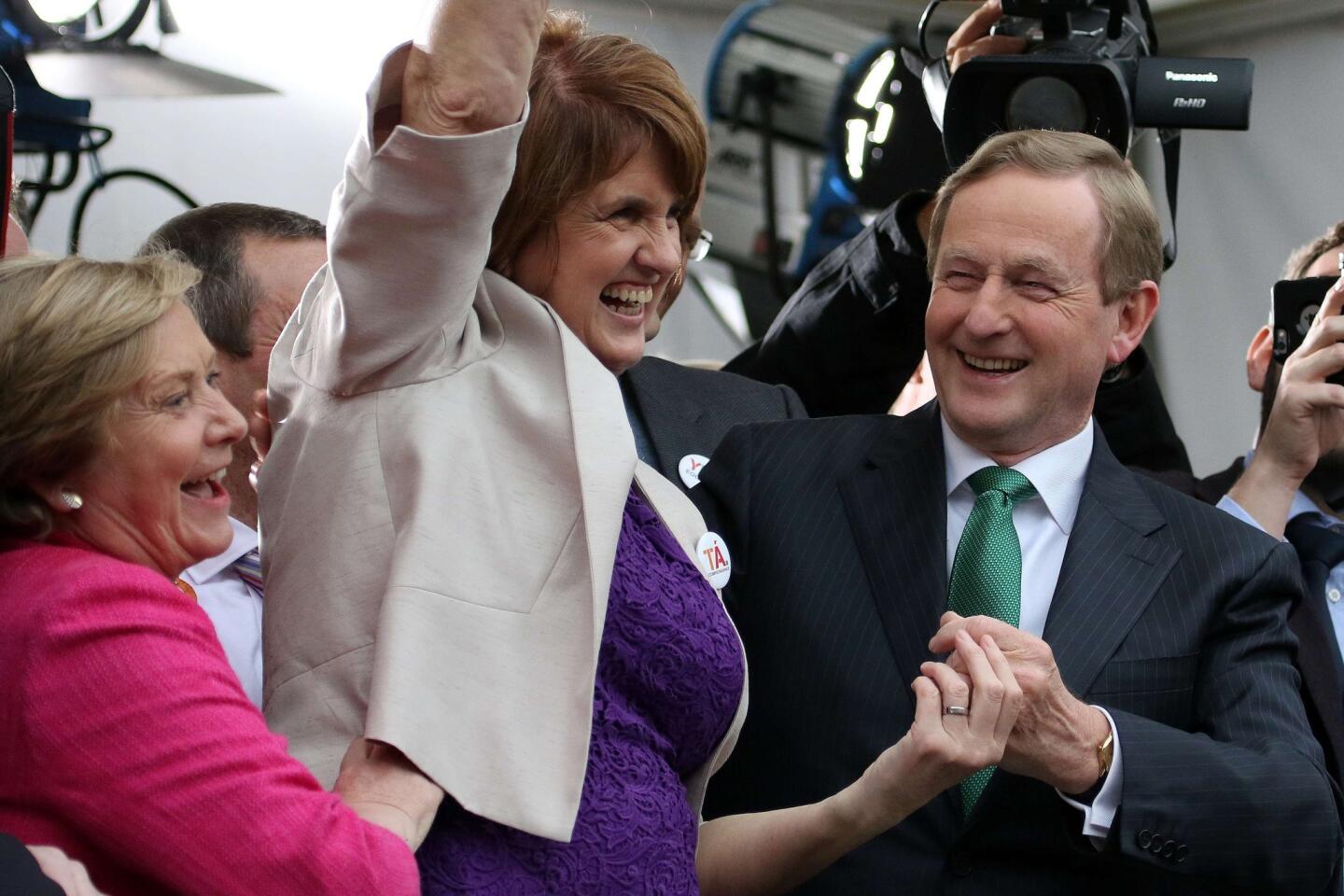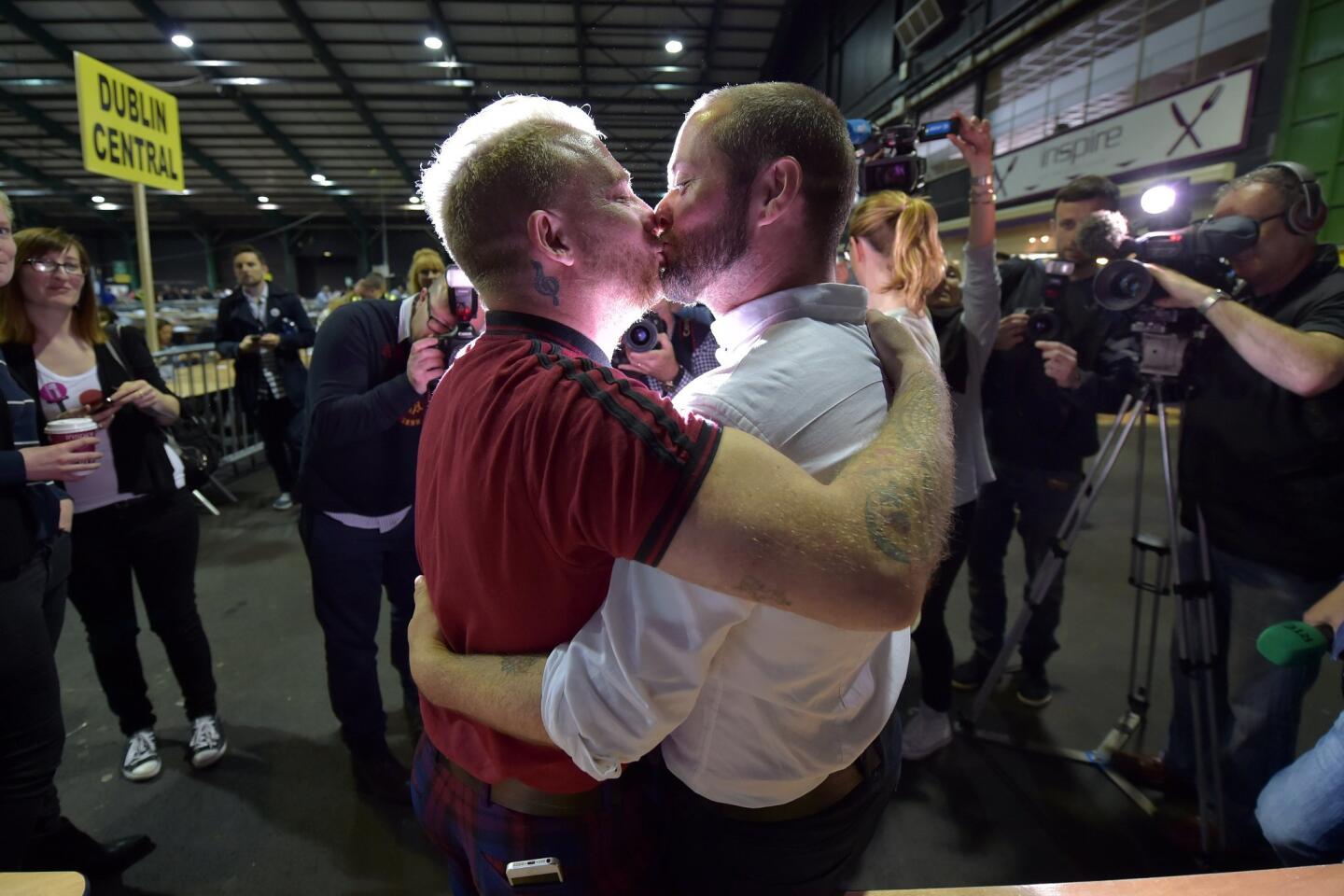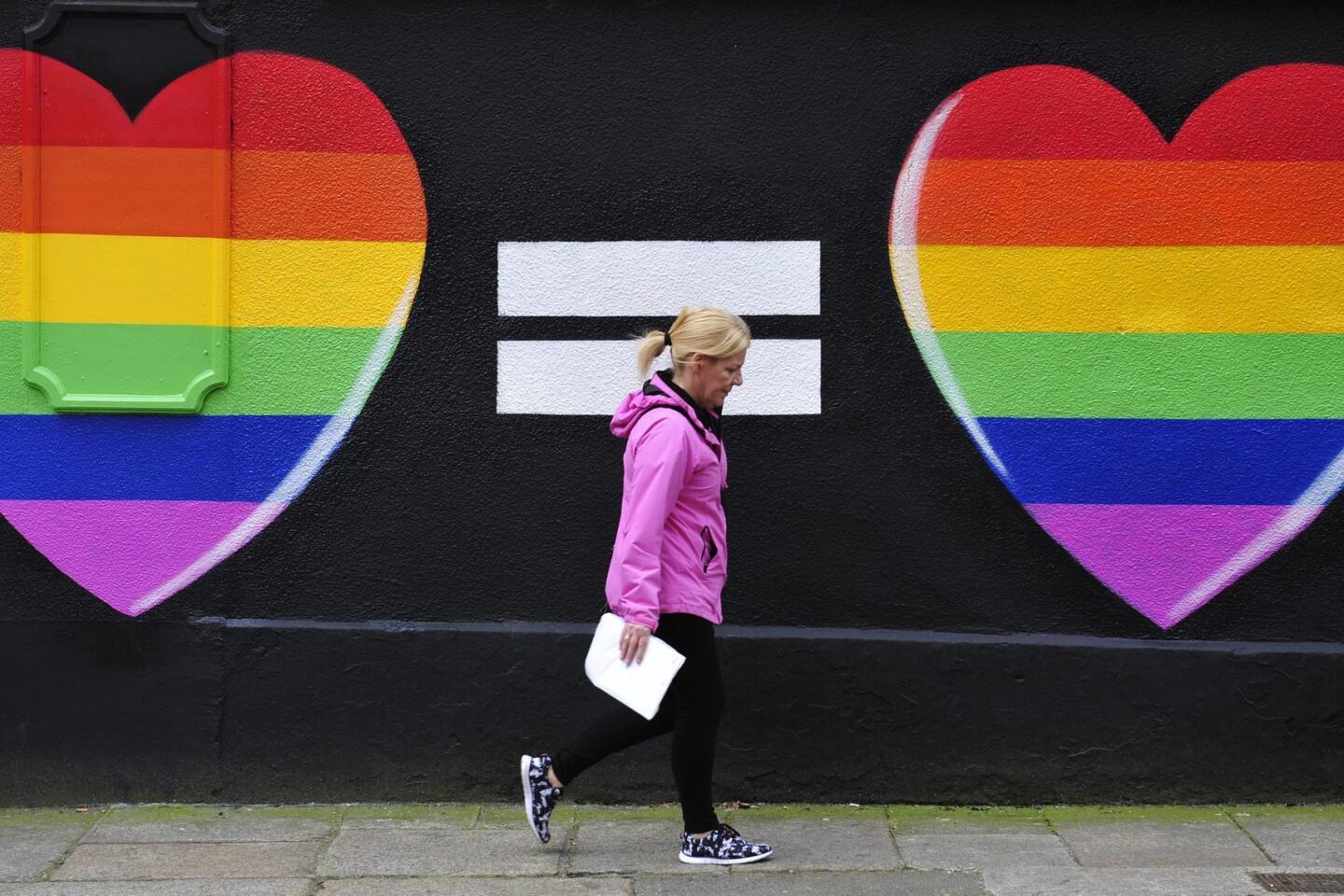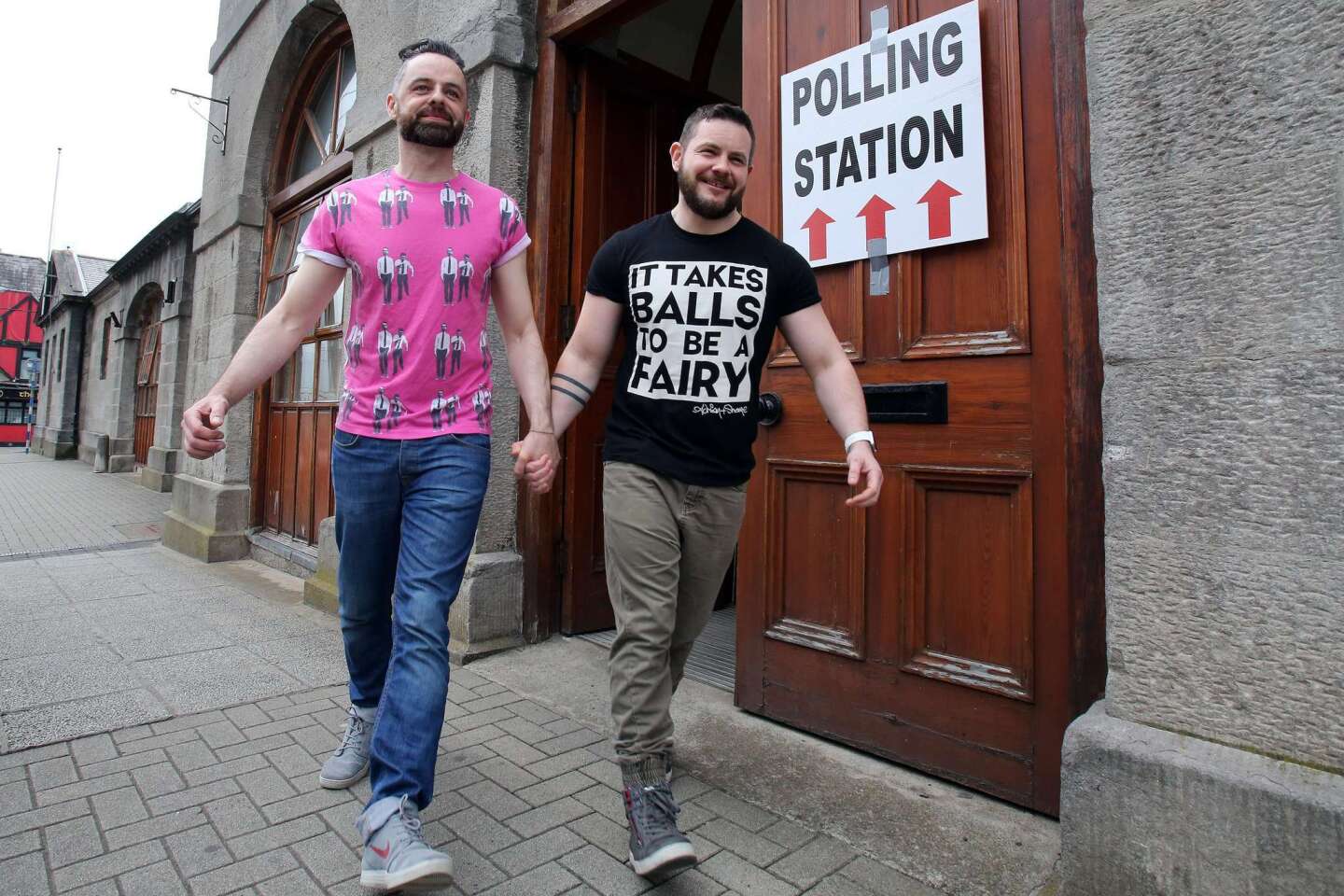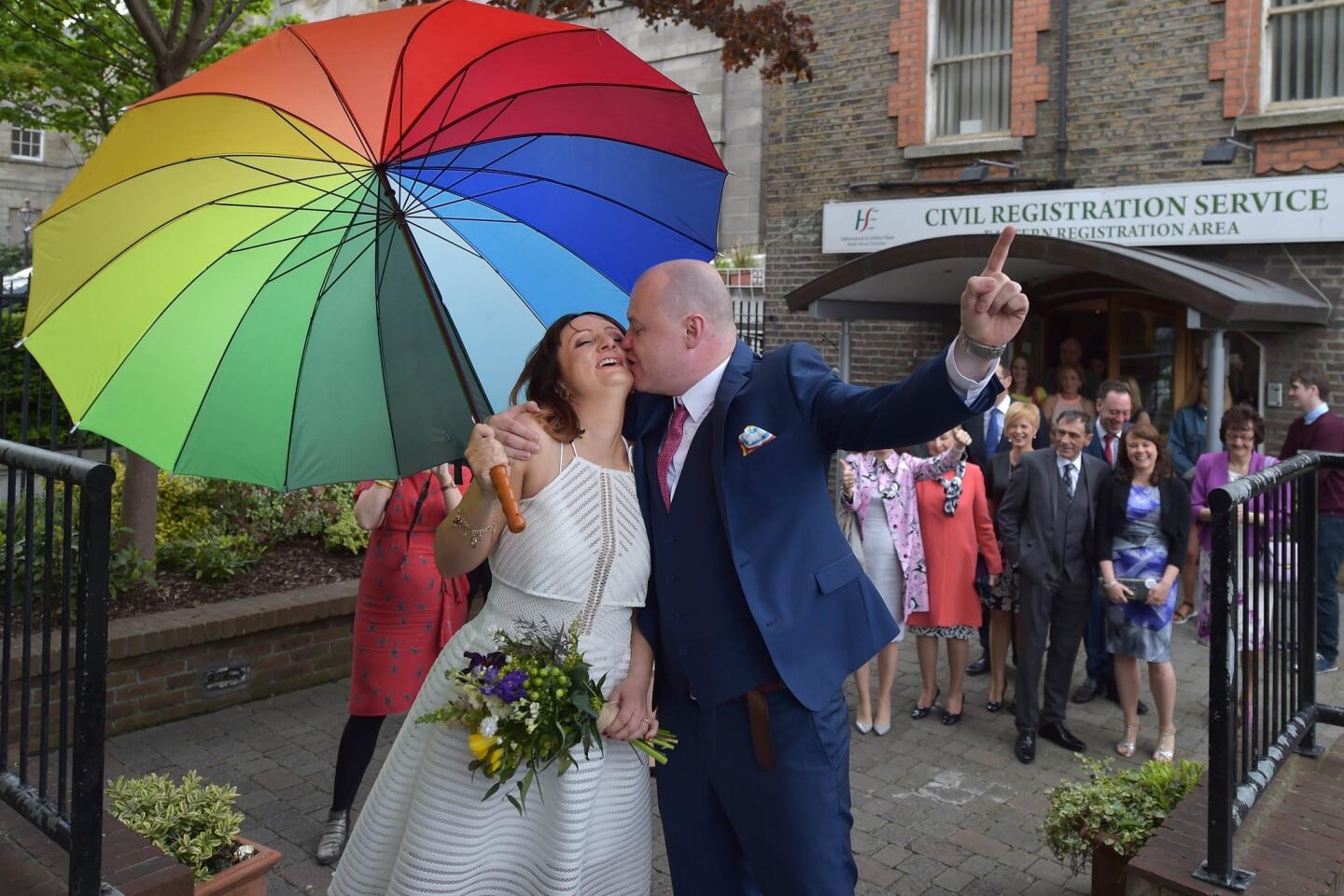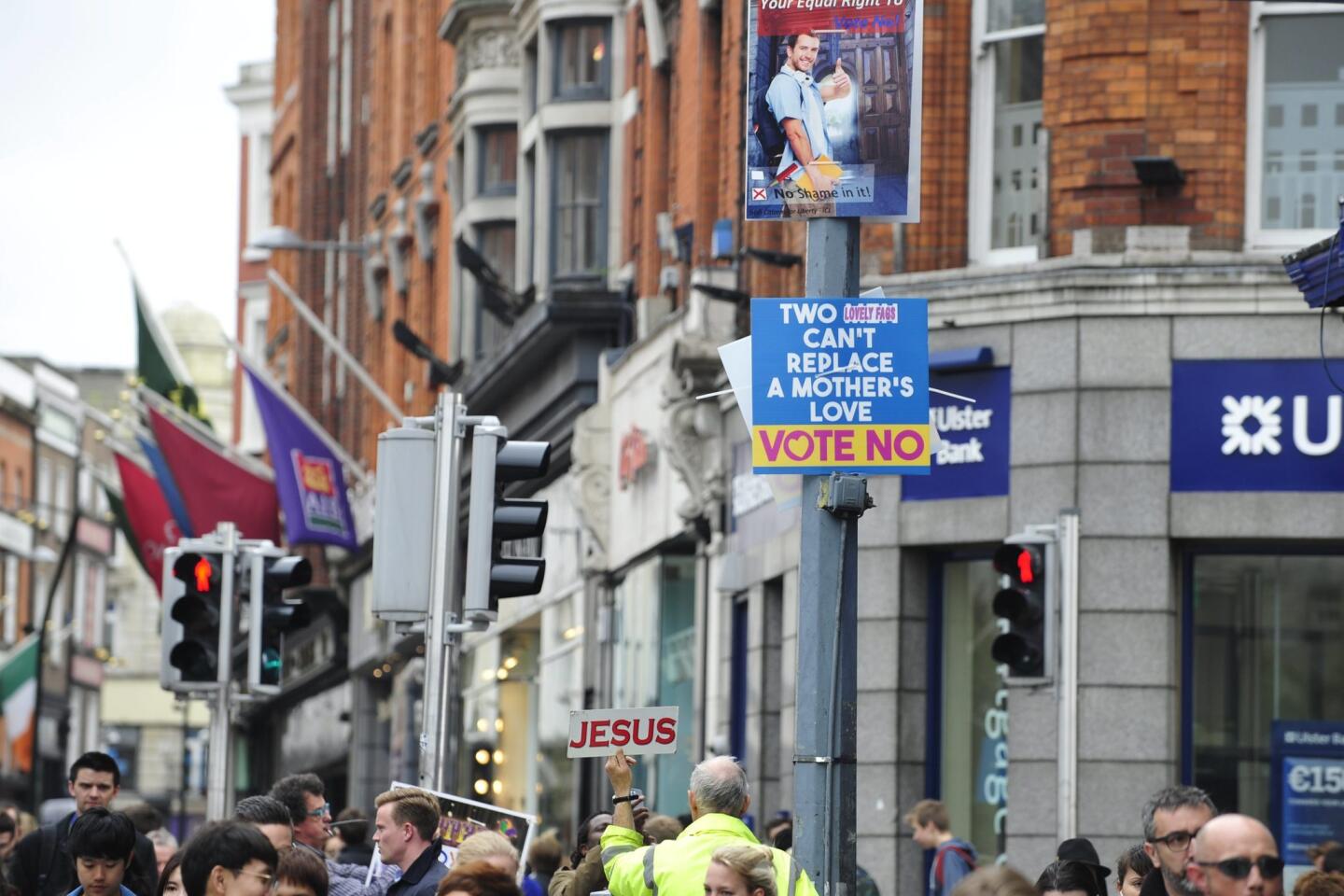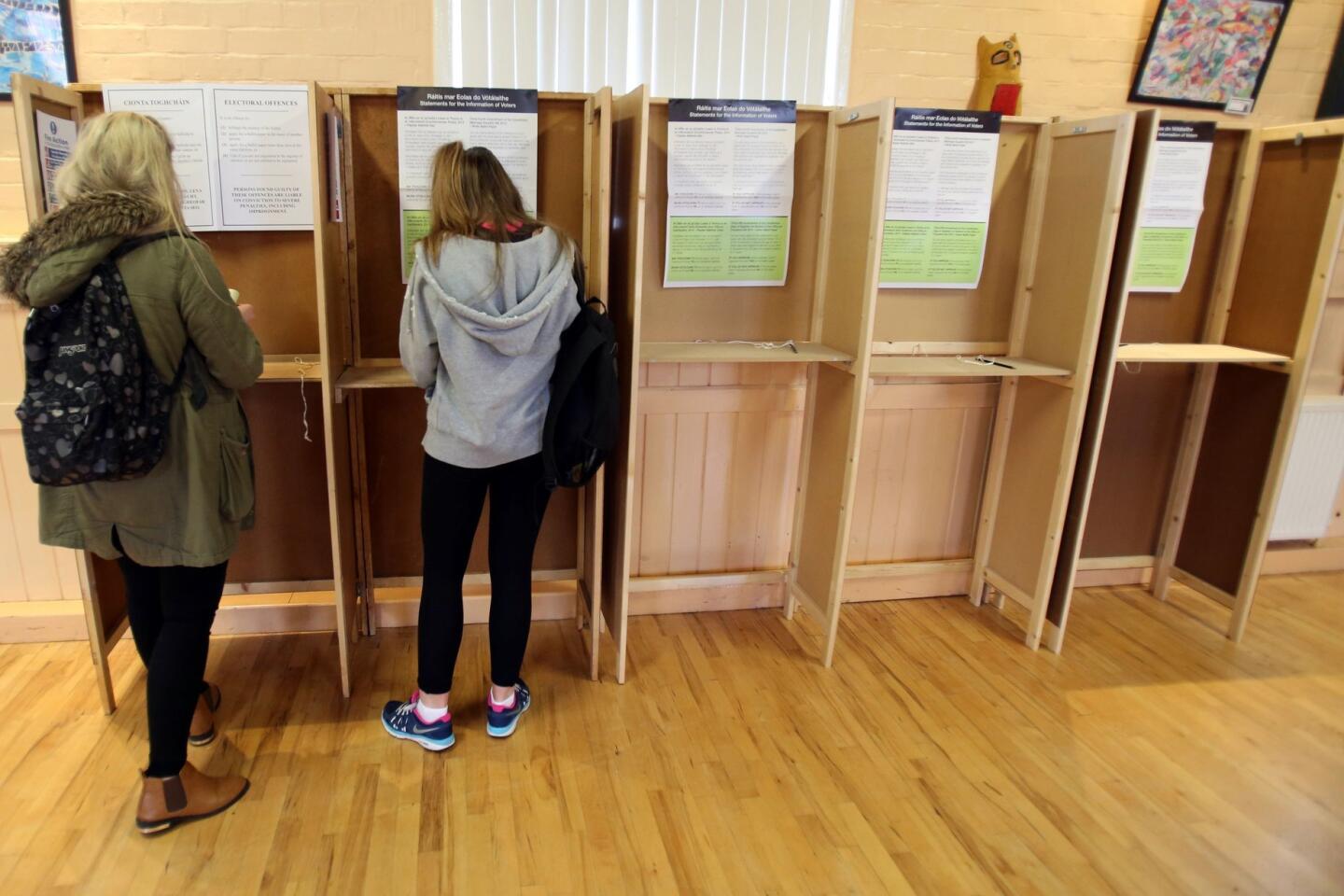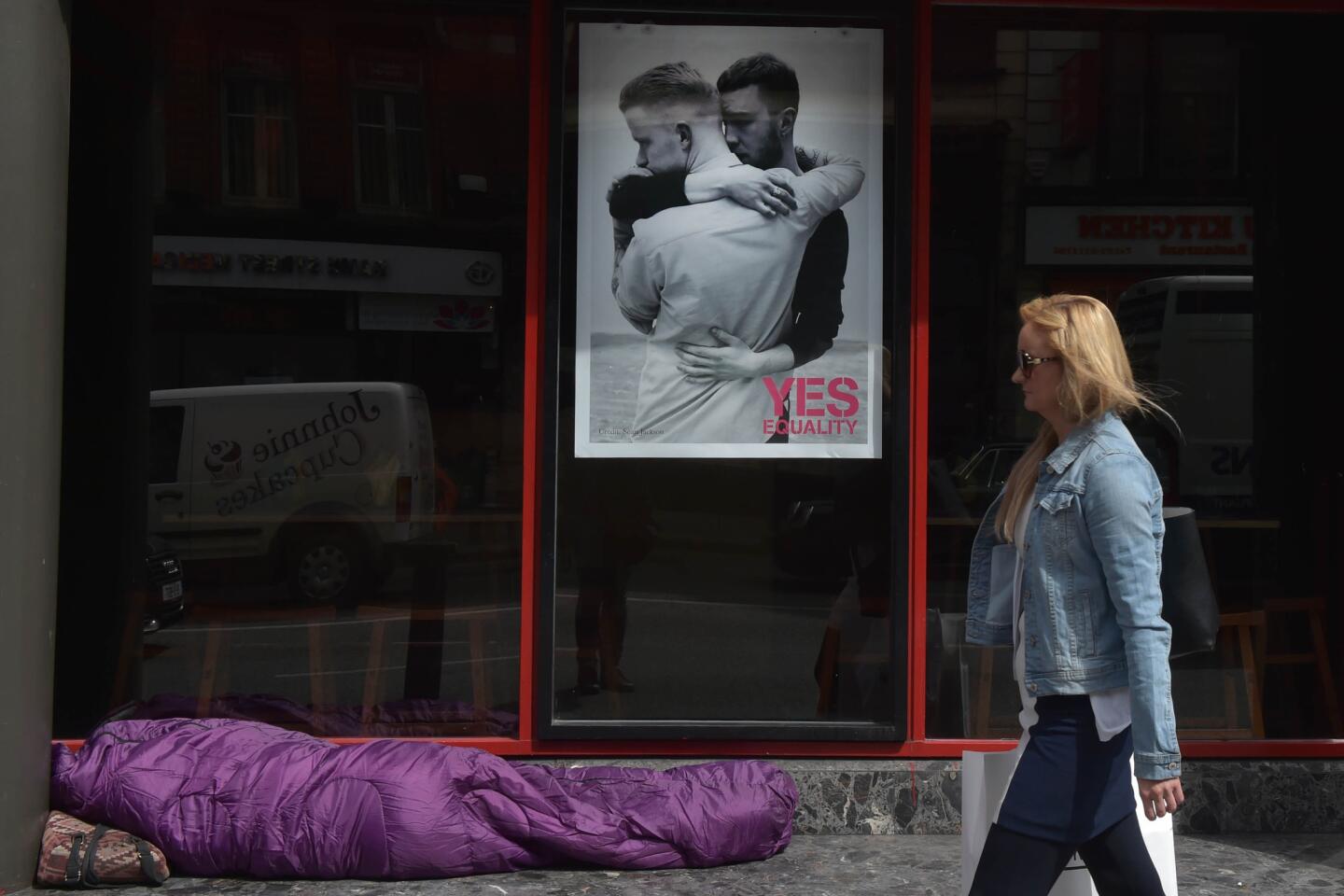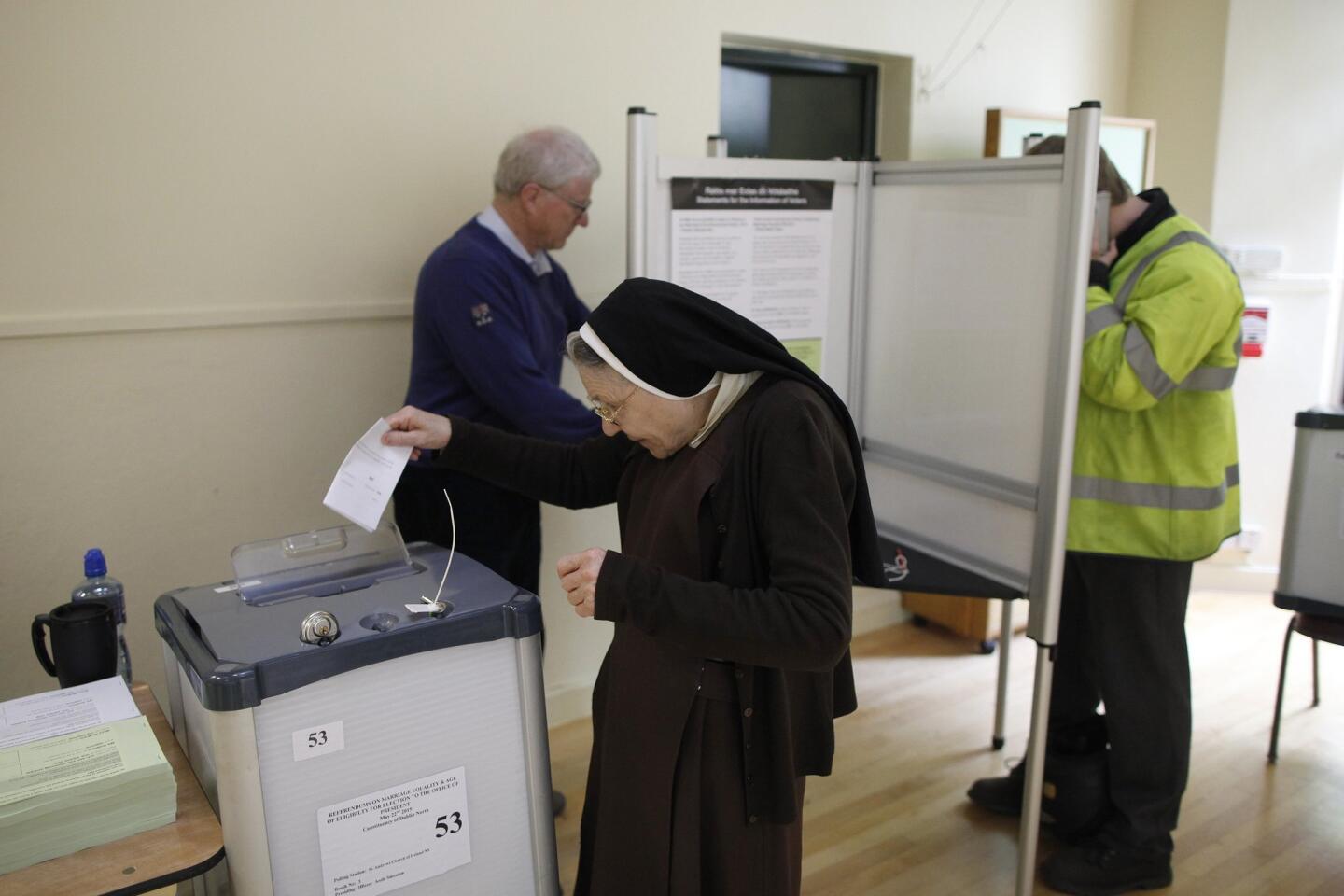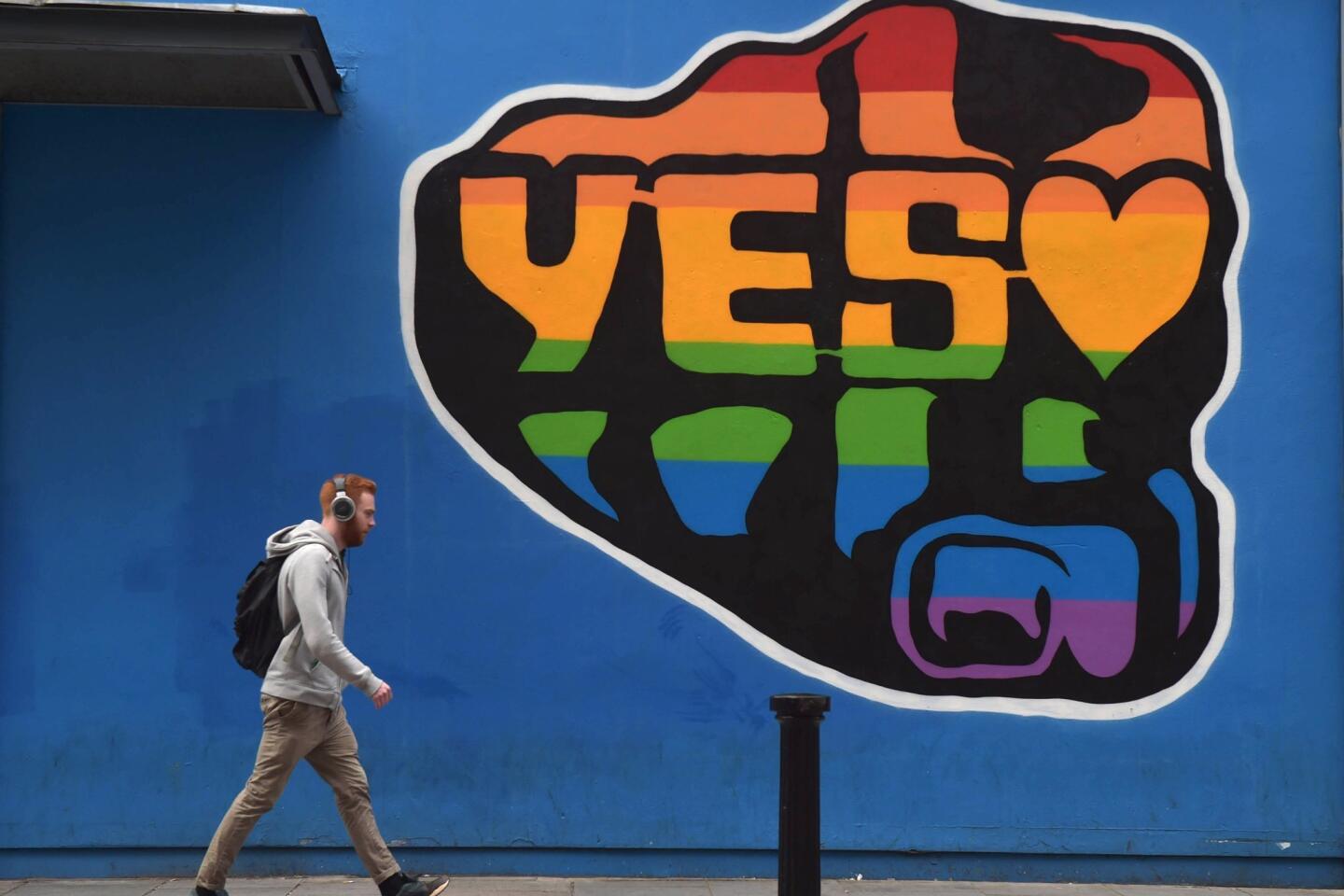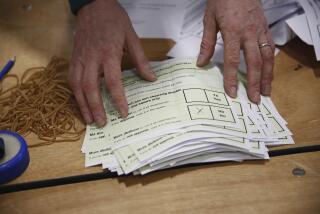Ireland votes on whether to allow same-sex marriage
Reporting from London — Voters in heavily Roman Catholic Ireland streamed to the polls Friday to cast ballots in a referendum on whether to change the country’s constitution to allow same-sex couples to marry.
Approval of the change would complete a remarkable reversal in attitude in a country where homosexuality was outlawed until 1993. It would also provide further evidence of the declining influence of the Roman Catholic Church, which was tarnished by revelations of decades of child abuse by members of the clergy.
People were lined up outside some polling stations in the capital, Dublin, when voting began at 7 a.m. and late in the evening before the polls closed at 10 p.m., according to Ireland’s public broadcaster, RTE.
Officials reported heavier than usual turnout in a number of areas, with more than 60% of registered voters casting ballots in parts of Dublin, Limerick and Waterford.
The high turnout in Dublin was expected to favor the “yes” side, which was hoping for a large showing of younger voters to push through the government-backed amendment.
Seventeen other countries, including Britain, Spain and France, have legalized same-sex marriage through legislation or court rulings, but Ireland would be the first to do so through a popular vote.
Gay and lesbian couples have been able to enter into civil partnerships since 2011, but many activists contend such unions do not provide the same legal protections and rights as marriage.
Friday’s referendum calls for adding a sentence to the Irish Constitution stating: “Marriage may be contracted in accordance with law by two persons without distinction as to their sex.”
Polls suggested that the amendment would be approved, but analysts cautioned that the number of “no” and undecided voters increased in the final weeks of the campaign.
More than 3 million people were registered to vote Friday with results expected the following day. They included thousands of expatriates who traveled home from as far afield as New York and Sydney to vote.
For Orla Howard and Grainne Courtney, it will be an anxious wait. The couple , who have two children, married in New York in 2012. But their union is not recognized in Ireland, where they live.
“It’s a terrible, difficult thing to have to ask all the people of Ireland can you get married and to think they might say ‘no’,” Courtney told the Irish Times newspaper.
However, she was moved by an outpouring of support during the campaign. “Something very profound has changed,” she said.
Andrew Hyland, a spokesman for the “yes” campaign, was optimistic that same-sex marriage would be approved. The campaign sent bus-loads of supporters to knock on doors across the nation in the weeks before the vote.
“I feel that we have ignited the imagination, hopes and dreams of a certain proportion of people,” Hyland said.
Bridget Ryan, 61, is not one of them. “You can give the gays their rights without redefining the whole institution of marriage,” she told the Associated Press as she voted with her border collie in tow at a Catholic parish hall in Dublin. “What they’re asking for is too much.”
“No” supporters complained that campaigning had been weighted in favor of their opponents, with all the country’s main political parties, major businesses and media groups expressing support for same-sex marriage.
“’No’ posters have been torn down and defaced around the country with people boasting about it on social media, even though they’re breaking the law,” said David Quinn, founder of the Iona Institute, a conservative religious lobby group.
Catholic Church leaders opposed the referendum, and Quinn said there may have been more people voting “no” Friday than suggested by opinion surveys.
“There was an anecdote from Roscommon, where some ‘no’ canvassers were out , and they stopped two women and asked them how they were going to vote,” Quinn said. “They said they were going to vote ‘yes.’ And the canvassers said, ‘That is a shame because we work for the ‘no’ campaign.’ And they said, ‘Well then if that is the case, we can tell you the truth, we are actually voting ‘no.’”
Mitic is a special correspondent. Times staff writer Alexandra Zavis in Los Angeles contributed to this report.
More to Read
Sign up for Essential California
The most important California stories and recommendations in your inbox every morning.
You may occasionally receive promotional content from the Los Angeles Times.
